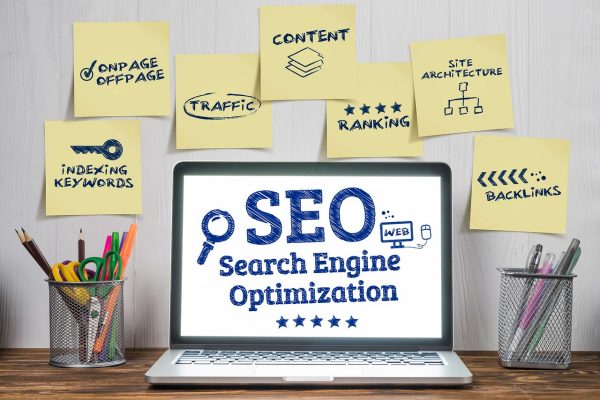

How to Future-Proof Your SEO Strategy with AI Tools
How to Future-Proof Your SEO Strategy with AI Tools
In the digital marketing landscape, staying ahead means embracing change. Especially when it comes to search engine optimization. Have you considered how artificial intelligence can revolutionize your SEO efforts? With search engines continuously evolving their algorithms and user behavior shifting, integrating AI into your SEO workflow is becoming essential. AI-powered tools offer remarkable capabilities that can transform how you approach keyword research, content creation, and SERP analysis, helping you stay competitive for the long haul.
Let’s walk through the most impactful ways AI tools can future-proof your SEO strategy and why taking this step could redefine your approach completely.
Exploring AI-Powered SEO Tools: Surfer, Frase, and Clearscope
If you haven’t encountered these names yet, Surfer, Frase, and Clearscope stand out as industry-leading AI SEO platforms. Each brings unique features designed to augment your SEO process:
-
Surfer SEO excels at analyzing on-page content and comparing it against top-ranking pages. Its AI assesses over 500 factors to optimize your content structure, keyword usage, and meta tags, offering data-driven recommendations to improve rankings.
-
Frase focuses on content research and creation. Using AI, it helps generate detailed content briefs, suggests relevant topics based on user intent, and even drafts optimized content, saving marketers countless hours.
-
Clearscope emphasizes content relevance and depth by analyzing competitor pages and highlighting key terms you should include. It offers an intuitive interface for creating content that aligns with both SEO best practices and reader expectations.
What makes these tools compelling isn’t just automation but their ability to interpret data patterns and transform insights into actionable strategies effortlessly. They empower marketers to craft content that’s both search engine-friendly and genuinely valuable to readers.
Machine Learning in SERP Analysis and Trend Prediction
One of the most exciting capabilities of AI in SEO lies in its ability to analyze Search Engine Results Pages (SERPs) deeply. Machine learning algorithms study vast amounts of search data, identifying shifts in ranking factors and user preferences faster than any human could. This means SEO professionals can predict which trends are emerging and adjust their strategies proactively.
Imagine knowing weeks or months in advance which keywords are gaining traction or how content formats should evolve to maintain visibility. This predictive power gives you a strategic edge, allowing for smarter allocation of resources and timely content updates.
Furthermore, AI’s continuous learning means it adapts as search engine algorithms change. This dynamic adjustment helps marketers avoid strategies that may soon become obsolete, ensuring their SEO efforts remain resilient through updates and fluctuations.
Enhancing Content Creation: Outlines, Intent Targeting, and Optimization
Crafting content with pinpoint accuracy to user intent is the heart of modern SEO, and AI tools revolutionize this process. By analyzing existing top-performing pages, these tools help you develop comprehensive content outlines that cover all relevant subtopics.
AI can identify what questions users ask related to your keywords and ensure your content addresses those queries effectively. This improves engagement and increases the likelihood that your content satisfies search intent, a critical ranking factor.
But AI doesn’t stop there. It can optimize your content on the fly. Suggesting keywords to include, highlighting areas needing expansion, and recommending structural changes to improve readability and coherence. The result is content that is not only keyword optimized but genuinely aligned with what your audience seeks.
This shift from guesswork to data-driven content crafting can save time and create higher-performing pages that attract and retain visitors.
Ethical Considerations and Limitations of AI in SEO
While AI tools offer powerful advantages, it’s crucial to approach them thoughtfully. Relying solely on AI-generated content or recommendations can sometimes lead to generic or shallow material that fails to resonate deeply with real people.
SEO experts and marketers must balance AI assistance with human creativity, insight, and ethical standards. Authenticity and originality remain non-negotiable if you want to build lasting trust with your audience and avoid search engine penalties.
Another limitation is the potential bias in AI algorithms, which rely on existing data that might not represent diverse perspectives or emerging niche topics fully. It’s important to review and refine AI outputs critically.
Finally, transparency about using AI and respecting user privacy should guide your implementation of these technologies. Responsible use of AI ensures your SEO strategy is not only effective but sustainable and credible over time.
Frequently Asked Questions
What kinds of tasks can AI SEO tools like Surfer, Frase, and Clearscope automate?
AI SEO tools can automate keyword research, content brief creation, competitive analysis, on-page optimization suggestions, and even draft content outlines or copies, vastly speeding up the workflow.
How does machine learning improve SEO trend prediction?
Machine learning algorithms analyze large datasets from search queries and SERP changes to identify patterns and emerging trends, allowing marketers to anticipate shifts in user behavior and ranking factors.
Can AI fully replace human input in SEO content creation?
AI enhances efficiency but doesn’t replace human insight. Quality SEO content requires human creativity, critical thinking, and ethical judgment to resonate authentically and comply with search engine guidelines.
What ethical challenges should be considered when using AI for SEO?
Challenges include avoiding over-reliance on AI-generated content that may lack originality, ensuring transparency about AI use, preventing algorithmic bias, and respecting user privacy and data rights.
How can AI tools help with content intent targeting?
AI can analyze user queries and competitor content to uncover the true intent behind search terms, helping you create content that directly answers user needs and improves search relevance.






